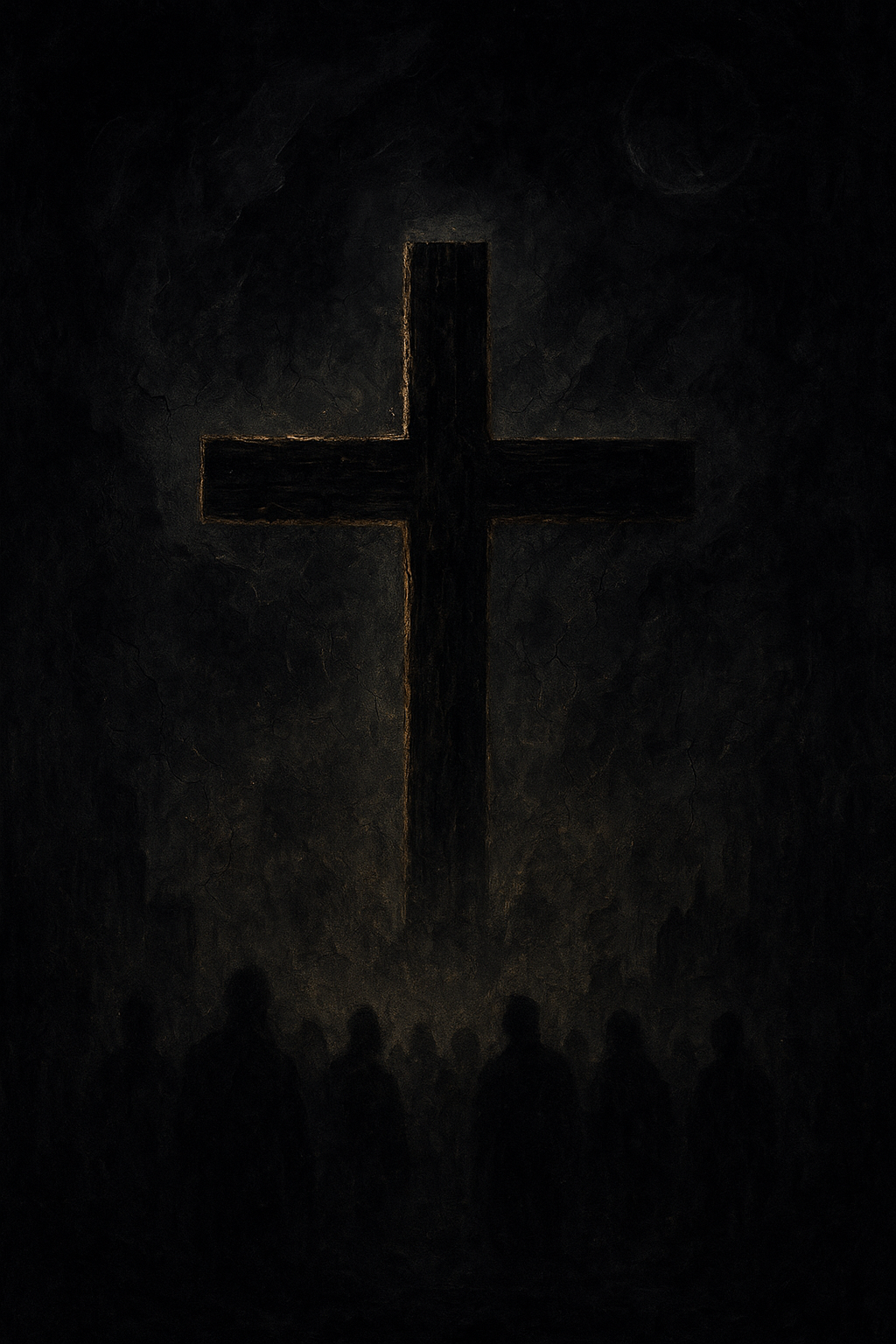Cultural Christianity sounds harmless. People say it means celebrating Christmas, enjoying church weddings, or calling Europe “Christian” even when belief is gone. But behind this idea hides a dangerous illusion. It preserves myths from the Bronze Age. It keeps alive a worldview that belongs to shepherds, priests, and rulers of ancient tribes. And it risks dragging society back into darkness.
Tradition without belief
Cultural Christianity means rituals without faith. People no longer believe in heaven or hell, yet they baptize their children. They skip church, yet defend “Christian culture.” They imagine that keeping symbols will preserve identity. In reality, they are only feeding hypocrisy. A culture that clings to myths it no longer believes in is not culture. It is denial.
Bronze Age myths
Christianity was born from myths that go back to the Bronze and Iron Ages. Creation stories that deny science. Tales of miracles, punishments, and divine rulers. Myths of sin, sacrifice, and eternal torment. These stories were not written with reason. They were made to control, to explain lightning, and to keep tribes in fear. Preserving them today is like teaching astrology in schools. It makes no sense.
Nobody of the writers actually knew Jesus
No writer who left us a text about Jesus actually knew him. There is not a single contemporary document from his lifetime. Philo of Alexandria, who wrote in detail about Jewish life and customs, never mentioned him. Neither did other historians who lived close enough to have noticed. Even his supposed family left no record. Silence is louder than faith.
The Gospels appeared decades later. They were written in Greek, not the language Jesus allegedly spoke. The authors remain uncertain. Their purpose was not to record facts but to build theology. Contradictions about his genealogy, birthplace, and resurrection witnesses expose how traditions changed as stories traveled.
Paul’s letters are even clearer. He never met Jesus. He built his version of the figure through visions and reinterpretations. That is not biography. That is myth-making.
The implication is simple. What we have is not reliable history. What we have is a legend. The Jesus who shaped culture was a symbol, not a man documented by his contemporaries. Faith created him. Writing amplified him. Reality remains absent.
The illusion of identity
Supporters of cultural Christianity say it is about identity. They argue that Europe without Christianity would lose its roots. But roots can be poison as well as nourishment. Christianity burned witches, launched crusades, and silenced thinkers. It fought medicine, astronomy, and philosophy. Its heritage is as much blood and ignorance as it is art and music. Defending it as identity is defending chains as family jewelry.
The return to darkness
Every time Christianity regained power, it brought suffering. Inquisitions, religious wars, forced conversions. Whenever rulers needed obedience, priests provided it. To say we should preserve cultural Christianity is to invite that past back into the present. It is to flirt with the Dark Ages, when fear ruled stronger than knowledge. A society that embraces cultural Christianity is not moving forward. It is moving backward into shadow.
Morality without Christianity
Some argue that cultural Christianity gives us morality. They claim values like compassion, honesty, and justice come from it. But morality is older and broader than Christianity. Humans had codes before Jesus. Justice existed in Mesopotamia, ethics in Greece, compassion in Buddhism. Christianity distorted morality, made it selective, and tied it to power. It justified slavery, torture, and genocide. The true gains of humanity—human rights, freedom, democracy—arose despite it, not because of it.
A better alternative
Society does not need cultural Christianity to survive. We have better guides. Rational humanism, science, and secular ethics give us a stronger base. Philosophy teaches us to question. Psychology explains behavior. History shows the cost of ignorance. Identity does not need myth. It needs truth, knowledge, and creativity. The future belongs to those who dare to let go of outdated illusions.
Cultural identity beyond belief
Even when faith collapses, culture lingers. People cling to the symbols of religions they no longer believe. They call themselves cultural Jews, cultural Christians, or cultural Muslims. It is identity without truth. It is tradition without conviction.
Steven Pinker offers one example. He is a secular atheist but calls himself a cultural Jew, he values heritage, debate, and humor from Jewish tradition. He does not pray, but he accepts the label.
The same happens with Christianity. Some atheists call themselves cultural Christians. Richard Dawkins, one of the fiercest critics of faith, has admitted he feels Christian in culture. He enjoys carols, cathedrals, and Christian ethics as history, not belief. Others keep the title because they were raised in it. They keep the music but discard the miracles.
The problem of heritage without truth
This persistence of identity shows that myth can survive even when nobody believes it literally. But it also shows how dangerous it is. People protect illusions because they are comfortable. They call them heritage. They call them culture. But in the end, they are preserving ideas that never made sense, written by people who never met the man they glorified.
The truth is brutal. Nobody who wrote about Jesus knew him. What they passed down is myth, not biography. And when atheists call themselves cultural Christians or cultural Jews, they prove how hard it is to kill mythology once it wears the mask of identity.
Conclusion
Cultural Christianity is not harmless nostalgia. It is a trap, it preserves primitive myths, hides hypocrisy, and risks new suffering. It offers no truth, no justice, and no progress. We should not cling to it. We should reject it. The path forward is clear. Free thought, secular culture, and reason must replace the shadow of religion. Only then can humanity escape the darkness that cultural Christianity still carries in its name.

Leave a Reply